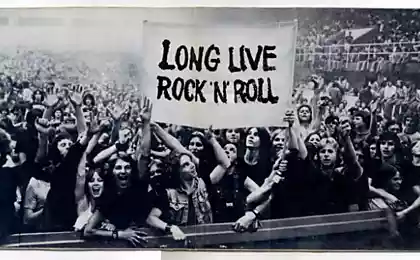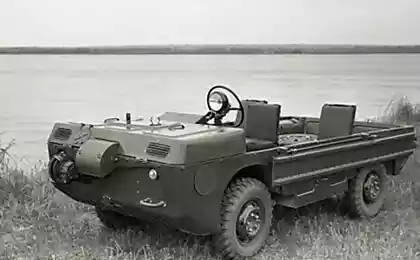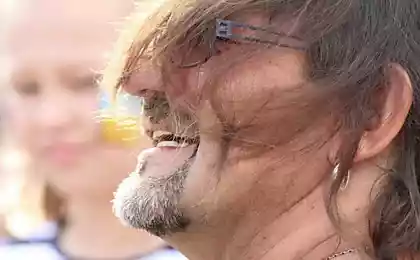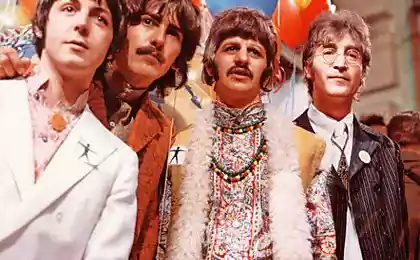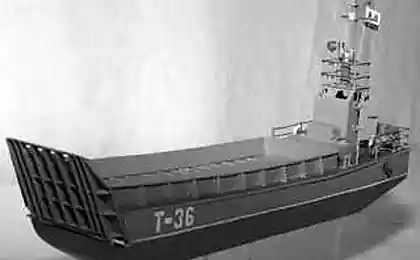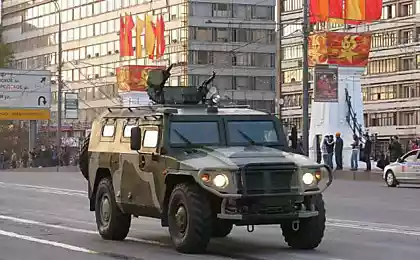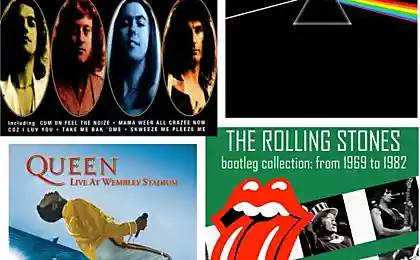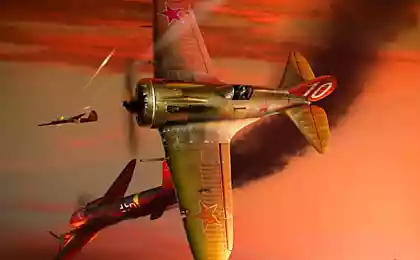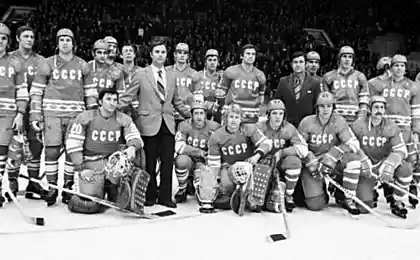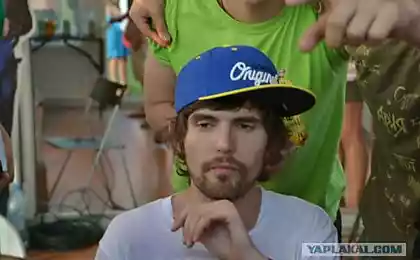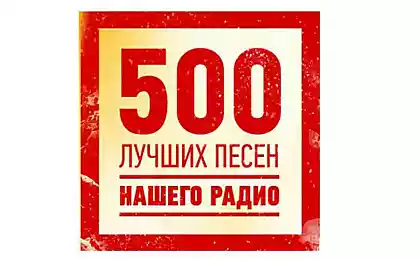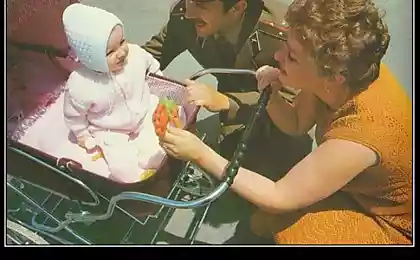990
Soviet rock like amateur
Tbilisi-80, "Curd", Podolsk, Novosibirsk and other scandalous festivals in the USSR
Exactly 25 years ago - December 2, 1988 - "Civil defense" won first place in the Moscow rock festival "Curd».
"Russian planet" recalls festivals that allow legalized Soviet rock 'n' roll. ©
Group "Aquarium" at the festival "Spring Rhythms" in Tbilisi, 1980
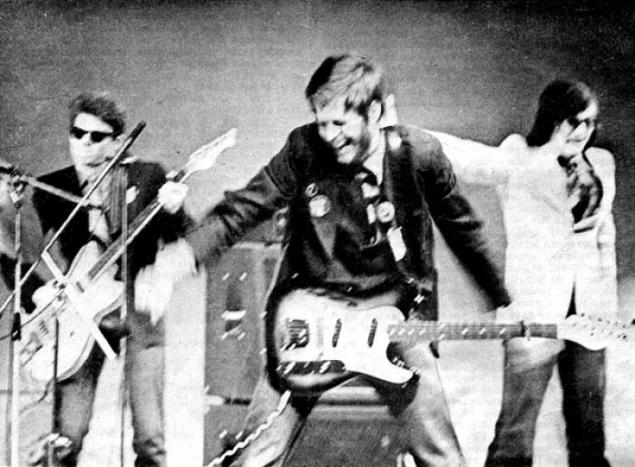
Kamensk-rock festival, 1966
The first Soviet rock festival held in the Sverdlovsk region in 1966. It was organized by the leader of Kamensk-group "Mesyatseviki" Vladimir Prokin. Five local groups performed songs The Beatles, as well as their own material on the stage of the Palace of Culture "Yunost". Head of the Executive Committee of Culture, watching cultural actions, left the hall after the second composition. The festival gathered a full house - almost a thousand men - and lasted until late at night. The consequences for the organizers were deplorable: they were called to the police and the KGB, and Prokin was sentenced to four years in the camps.
"Silver Strings", 1971
In the early 1970s, rock music in the Soviet Union existed in a semi-underground status. To legalize, rock bands had to masquerade as a variety of vocal and instrumental ensembles (VIA), or play a "lite" rock 'n' roll. In 1971, in the Gorky (from 1990 - Nizhny Novgorod) was the All-Union Festival "Silver Strings" dedicated to the 750th anniversary of the city. The first place it divided Chelyabinsk VIA "Ariel" by Valery Yarushina and founded in 1966 by Alexander Gradsky Moscow trio "Skomorokhy." Both groups have gained popularity all-Union, however, have been the glory of a downside - after the festival in Chelyabinsk teleradiokomitet directive came from Moscow: delete all records of the "Ariel", lit up in Gorky.
Tbilisi, 1980
According to the former keyboardist "Time Machine" Peter Podgorodetsky, bold idea to hold the All-Union Festival "Spring rhythms" in Tbilisi in March 1980 has been linked to an attempt to avoid Soviet boycott of the Moscow Olympics coming, which has already claimed several countries. The festival is almost no coverage in the press and shown on national television, which did not prevent him from becoming the most important event in the history of Russian rock. The venue was elected Georgian National Philharmonic; The festival was a competitive program, musical performances were judged. Among the organizers was an aspiring music critic Artemy Troitsky.
The event, which has become the leader of the group "Aquarium" Boris Grebenshchikov first appearance before a large audience, it had to backfire. In his book "Rock in the USSR" Trinity describes the band as follows: "When Boris started playing guitar stand from the microphone, and then lay down on the stage, holding zonked from such treatment borrowed" Telecaster "on his stomach and rattling the strings, the jury in full composed of rose and demonstratively left the hall. & lt; ... & gt; Cellist Seva hoisted on lying leader cello and began to saw the entire structure with a bow, bassoonist, running around with his sinister tool that simulated the execution of all this ugliness ... of such goods have not seen, half the audience applauded wildly, half - angrily booed. " Philharmonic bosses such behavior was regarded as propaganda of homosexuality, to which after the song "Marina" added another and promoting incest. The fact that Grebenshchikov replaced the line "And it's time to marry Finn" to "marry Ino," but the jury did not have a clue about the musician Brian Eno, and heard "marry his son».
The situation worsened performance of the Leningrad group "Kronverk" that during a song about a flying saucer Frisbee launched into the hall and landed them in the head of one of the members of the jury. According to legend, the manager "Kroneverka" Yuri took Baidak produced "Aquarium" stir among the organizers and for the return to Leningrad wrote on competitors denunciation. The group lost its rehearsal, and the Grebenshchikov - Komsomol ticket office and laboratory at the Research Institute.
Leningrad Rock Club, 1983
Leningrad Rock Club (LRC) was established in 1981; Club activities supervised by the KGB, who sought to control the informal environment; According to legend, in the concert hall on the street Rubinstein for employees of, party officials and Komsomol activists were reserved special places. Nevertheless, a rock club became the first place in the country where you can legally play rock. Among the members of the club were "Picnic", "Secret", NOM, "Aquarium", "Movie", "Alice", "Auction" DDT "TV».
The first festival LRC had the status of the competition performances. The jury under the supervision of Party Committee of the Young Communist League and formed the board of the club under the leadership "of the Leningrad inter-Allied House of amateur creativity" (LMDST). The laureates were awarded diplomas for "behind the original decision of the concert program", "Integrity and integrity in the realization of the ideas of rock music", "for the bright melody and softness of sound" and other categories. At the first festival to define a standard script, which is then repeated in all competitions LRC: the event was preceded by the annual showdown for the distribution of tickets, and they always ended in quarrels (and sometimes - fights) because of the poor sound and especially - the diplomas. When selecting the winners of the jury was guided by the principle of "how not to offend anyone," why groups often shared one place, and in an additional diplomas comforting formulation. In addition to the best team selected as the best instrumentalists, and saxophonist could become "better", even if it was only one. At the end of the line "final conference" where judges acted as music theorists.
The first festival of the Sverdlovsk rock club, 1986
Sverdlovsk Regional Party Committee ordered the creation of the city in the rock club (IBS) in 1986. It included Nautilus Pompilius, «CHajf", "Urfin Juice," "Agatha Christie", "Red Cross" and others, in 1990, joined the "Semantic hallucinations».
Over the period of a rock club (until 1991) he was excluded from only one group, and that - temporary. At the first festival of IBS, which was attended by 20 teams, during the band's "Flag" of its leader Sergei Kurzanov he made an announcement informing the audience that will be raised the battle flag of the Ural rock. At the scene down the red flag with the hammer and sickle, the charred bottom, as if shot by machine-gun fire. The musicians kept the guitar at the ready, as the machines. In the hall, where there were several hundred people, including Komsomol activists and employees of the lights went out. Then the leader of the group "CHajf" Vladimir Shahrin tore the flag, then the light is turned on, and the "Flag" was asked to leave the stage. IBS Administrator Alexander Kaluga announced that at the request of the members of the jury of musicians and club group "Flag" for six months suspended from membership for "anti-Soviet sentiments».
Novosibirsk rock festival, 1987
In April 1987, "Civil Defense" uninvited came on I Novosibirsk rock festival. The organizers of the event there was a problem: as the Regional Committee of the Young Communist League banned the act of "Sounds of Moo" and "Auction", a hole in the program, it was urgent to fill in something. Group Yegor Letov was presented to them as a model amateur team from Omsk. As a result, GO managed to play 25 minutes, until the authorities did not come round. After the festival Letov was wanted and six months traveling the country hitchhiking. By the winter of search stopped, and "Civil Defense", which became after the festival in Novosibirsk cult, recorded the albums "Everything is going according to plan," "So the Steel Was Tempered" and "Battle stimulus».
Chernogolovka 1987
The symbol of the rock festival in Chernogolovka in June 1987 became a hedgehog with a guitar on his shoulder. Alexander acted Bashlachev "polite refusal", "Fun", and the best teams were recognized Nautilus Pompilius, DDT and "Zero". In addition to the long list of participants of the festival was remembered by the fact that the lead singer "DDT" Yuri Shevchuk threw chairs from the 12th floor of the hotel the Academy of Sciences. Once he tried to throw more and sofa, the musician was taken to a local police station.
In May 2005, Chernogolovskaya monkey was unveiled a plaque in honor of the famous "prisoner", who signed autographs during the celebration.
"This is a true story! The history of the spirit, the history of rock 'n' roll in this country ... - Shevchuk commented on the events of 1987 - the Spirit that was so much that he does not fit with us, even in the framework of the law - well, we were (...) to the department the police, as a result, spent the night there ... They thought it a sign to hang on the wall - they say, there was Yuri Yulianovich. Well, why not? Nothing human me, like Karl Marx, is not alien! »
Yuri Shevchuk behind bars. Inauguration of the memorial plaque in Chernogolovskaya police station,
where in June 1987 during the First All-Union rock festival detained Yuri Shevchuk.
Photo Alex Fedechko-Mackiewicz.
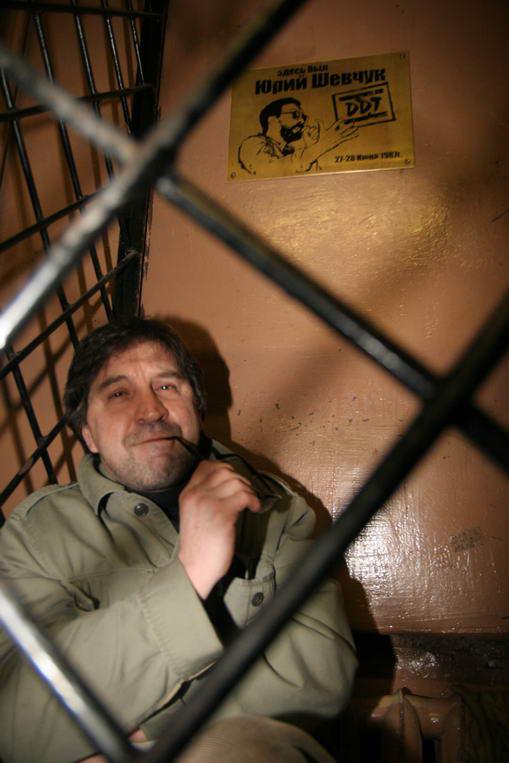
Podolsk, 1987
The festival of amateur rock bands "Podolsk-87" called "Soviet Woodstock" for its scale: 40 thousand people, 26 groups from the Baltic to Siberia. The festival, organized by the director of the Podolsk rock club Kolupayevs Peter, director of the Green Theatre Podolsky city park named Mark Rudinshtein Talalikhina, music journalist Sergei Guriev and Natalia "Comet" Komarova, has become a major event in the history of Soviet rock. Two days before the start of the city committee of the CPSU Podolsky decided to cancel the festival, however, was able to achieve Kolupaev by Deputy Minister of Culture of the RSFSR Nina Zhukova resolution, lied to her about the factory amateur competition. To maintain order in Podolsk was called Dzerzhinsky Division.
On the stage were not working monitors, musicians do not hear each other, but the crowd of thousands of spectators did not care. They finally learned that the underground groups are not only in Leningrad, Moscow and Sverdlovsk, but all over the Soviet Union. In the evening, the musicians and their fans heavily drunk and rowdy. Leningrad group "Zoo" smashed pension holiday for veterans, provided for the guests of the festival. Shevchuk, this time trying to throw out the window bed, but very tired and could not.
Official organizers realized that they were deceived: throughout the weekend, they had to listen to songs with lyrics like "Your dad fascist". After the end of the festival to Kolupaeva KGB man came up and said that he "became a weapon in the hands of the Zionists." The security officer gave evidence transcript of the song of the "Cement»:
"At the table sits a guest. - Guest - a Russian man.
His head nail. - The Jews nailed in the head Russian man.
This I had scored. - Confirms that scored a Jew.
To guest did not leave. - To the Russian people could not escape from the clutches of the Zionists ... »
As it turned out, about the same time, Moscow Jews applied for holding a rally against anti-Semitism, but they refused, so the activists put the power to the fact that in September 1987 they will hold a demonstration in an unspecified location.
Two months later, Mark Rudinshtein removed from the post of director of the Green Theatre.
"Curd" 1988
By 1988, most of the speakers before the festivals of groups are already successful business groups and releasing records at the firm "Melody", so the festival in Moscow came less untwisted, "Agatha Christie", "Screams Vidopliassova", "Unexpected", and "Civil Defense", which got the first place.
After the end of "curds" "Agatha Christie" and "Yelling Vidopliassova" became known in the whole Union, but this was the last underground bands that have managed to achieve such a resounding success: the interest in rock music subsided. Former underground gradually became mainstream and penetrated the airwaves perestroika. "Comet" continued to organize "curd" for five years, but the very first festival of that name showed that the heroic era of the forbidden and shrouded in legend "of the Soviet Rock" comes to an end.
Olga Kuzmenko
"Russian planet»
via mamlas
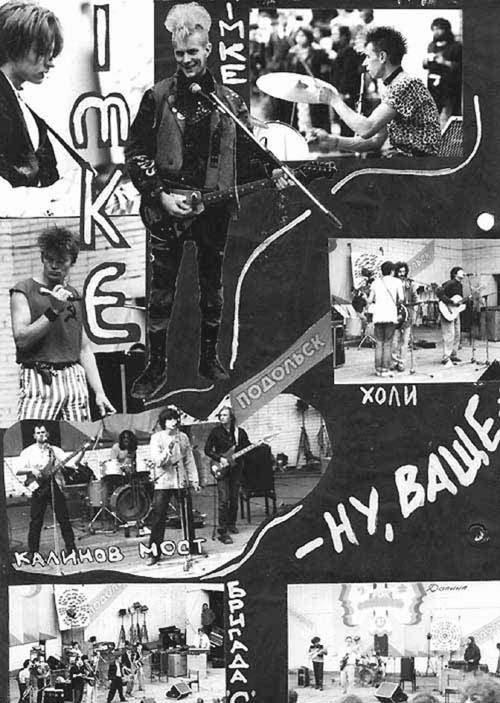
Source:
Exactly 25 years ago - December 2, 1988 - "Civil defense" won first place in the Moscow rock festival "Curd».
"Russian planet" recalls festivals that allow legalized Soviet rock 'n' roll. ©
Group "Aquarium" at the festival "Spring Rhythms" in Tbilisi, 1980

Kamensk-rock festival, 1966
The first Soviet rock festival held in the Sverdlovsk region in 1966. It was organized by the leader of Kamensk-group "Mesyatseviki" Vladimir Prokin. Five local groups performed songs The Beatles, as well as their own material on the stage of the Palace of Culture "Yunost". Head of the Executive Committee of Culture, watching cultural actions, left the hall after the second composition. The festival gathered a full house - almost a thousand men - and lasted until late at night. The consequences for the organizers were deplorable: they were called to the police and the KGB, and Prokin was sentenced to four years in the camps.
"Silver Strings", 1971
In the early 1970s, rock music in the Soviet Union existed in a semi-underground status. To legalize, rock bands had to masquerade as a variety of vocal and instrumental ensembles (VIA), or play a "lite" rock 'n' roll. In 1971, in the Gorky (from 1990 - Nizhny Novgorod) was the All-Union Festival "Silver Strings" dedicated to the 750th anniversary of the city. The first place it divided Chelyabinsk VIA "Ariel" by Valery Yarushina and founded in 1966 by Alexander Gradsky Moscow trio "Skomorokhy." Both groups have gained popularity all-Union, however, have been the glory of a downside - after the festival in Chelyabinsk teleradiokomitet directive came from Moscow: delete all records of the "Ariel", lit up in Gorky.
Tbilisi, 1980
According to the former keyboardist "Time Machine" Peter Podgorodetsky, bold idea to hold the All-Union Festival "Spring rhythms" in Tbilisi in March 1980 has been linked to an attempt to avoid Soviet boycott of the Moscow Olympics coming, which has already claimed several countries. The festival is almost no coverage in the press and shown on national television, which did not prevent him from becoming the most important event in the history of Russian rock. The venue was elected Georgian National Philharmonic; The festival was a competitive program, musical performances were judged. Among the organizers was an aspiring music critic Artemy Troitsky.
The event, which has become the leader of the group "Aquarium" Boris Grebenshchikov first appearance before a large audience, it had to backfire. In his book "Rock in the USSR" Trinity describes the band as follows: "When Boris started playing guitar stand from the microphone, and then lay down on the stage, holding zonked from such treatment borrowed" Telecaster "on his stomach and rattling the strings, the jury in full composed of rose and demonstratively left the hall. & lt; ... & gt; Cellist Seva hoisted on lying leader cello and began to saw the entire structure with a bow, bassoonist, running around with his sinister tool that simulated the execution of all this ugliness ... of such goods have not seen, half the audience applauded wildly, half - angrily booed. " Philharmonic bosses such behavior was regarded as propaganda of homosexuality, to which after the song "Marina" added another and promoting incest. The fact that Grebenshchikov replaced the line "And it's time to marry Finn" to "marry Ino," but the jury did not have a clue about the musician Brian Eno, and heard "marry his son».
The situation worsened performance of the Leningrad group "Kronverk" that during a song about a flying saucer Frisbee launched into the hall and landed them in the head of one of the members of the jury. According to legend, the manager "Kroneverka" Yuri took Baidak produced "Aquarium" stir among the organizers and for the return to Leningrad wrote on competitors denunciation. The group lost its rehearsal, and the Grebenshchikov - Komsomol ticket office and laboratory at the Research Institute.
Leningrad Rock Club, 1983
Leningrad Rock Club (LRC) was established in 1981; Club activities supervised by the KGB, who sought to control the informal environment; According to legend, in the concert hall on the street Rubinstein for employees of, party officials and Komsomol activists were reserved special places. Nevertheless, a rock club became the first place in the country where you can legally play rock. Among the members of the club were "Picnic", "Secret", NOM, "Aquarium", "Movie", "Alice", "Auction" DDT "TV».
The first festival LRC had the status of the competition performances. The jury under the supervision of Party Committee of the Young Communist League and formed the board of the club under the leadership "of the Leningrad inter-Allied House of amateur creativity" (LMDST). The laureates were awarded diplomas for "behind the original decision of the concert program", "Integrity and integrity in the realization of the ideas of rock music", "for the bright melody and softness of sound" and other categories. At the first festival to define a standard script, which is then repeated in all competitions LRC: the event was preceded by the annual showdown for the distribution of tickets, and they always ended in quarrels (and sometimes - fights) because of the poor sound and especially - the diplomas. When selecting the winners of the jury was guided by the principle of "how not to offend anyone," why groups often shared one place, and in an additional diplomas comforting formulation. In addition to the best team selected as the best instrumentalists, and saxophonist could become "better", even if it was only one. At the end of the line "final conference" where judges acted as music theorists.
The first festival of the Sverdlovsk rock club, 1986
Sverdlovsk Regional Party Committee ordered the creation of the city in the rock club (IBS) in 1986. It included Nautilus Pompilius, «CHajf", "Urfin Juice," "Agatha Christie", "Red Cross" and others, in 1990, joined the "Semantic hallucinations».
Over the period of a rock club (until 1991) he was excluded from only one group, and that - temporary. At the first festival of IBS, which was attended by 20 teams, during the band's "Flag" of its leader Sergei Kurzanov he made an announcement informing the audience that will be raised the battle flag of the Ural rock. At the scene down the red flag with the hammer and sickle, the charred bottom, as if shot by machine-gun fire. The musicians kept the guitar at the ready, as the machines. In the hall, where there were several hundred people, including Komsomol activists and employees of the lights went out. Then the leader of the group "CHajf" Vladimir Shahrin tore the flag, then the light is turned on, and the "Flag" was asked to leave the stage. IBS Administrator Alexander Kaluga announced that at the request of the members of the jury of musicians and club group "Flag" for six months suspended from membership for "anti-Soviet sentiments».
Novosibirsk rock festival, 1987
In April 1987, "Civil Defense" uninvited came on I Novosibirsk rock festival. The organizers of the event there was a problem: as the Regional Committee of the Young Communist League banned the act of "Sounds of Moo" and "Auction", a hole in the program, it was urgent to fill in something. Group Yegor Letov was presented to them as a model amateur team from Omsk. As a result, GO managed to play 25 minutes, until the authorities did not come round. After the festival Letov was wanted and six months traveling the country hitchhiking. By the winter of search stopped, and "Civil Defense", which became after the festival in Novosibirsk cult, recorded the albums "Everything is going according to plan," "So the Steel Was Tempered" and "Battle stimulus».
Chernogolovka 1987
The symbol of the rock festival in Chernogolovka in June 1987 became a hedgehog with a guitar on his shoulder. Alexander acted Bashlachev "polite refusal", "Fun", and the best teams were recognized Nautilus Pompilius, DDT and "Zero". In addition to the long list of participants of the festival was remembered by the fact that the lead singer "DDT" Yuri Shevchuk threw chairs from the 12th floor of the hotel the Academy of Sciences. Once he tried to throw more and sofa, the musician was taken to a local police station.
In May 2005, Chernogolovskaya monkey was unveiled a plaque in honor of the famous "prisoner", who signed autographs during the celebration.
"This is a true story! The history of the spirit, the history of rock 'n' roll in this country ... - Shevchuk commented on the events of 1987 - the Spirit that was so much that he does not fit with us, even in the framework of the law - well, we were (...) to the department the police, as a result, spent the night there ... They thought it a sign to hang on the wall - they say, there was Yuri Yulianovich. Well, why not? Nothing human me, like Karl Marx, is not alien! »
Yuri Shevchuk behind bars. Inauguration of the memorial plaque in Chernogolovskaya police station,
where in June 1987 during the First All-Union rock festival detained Yuri Shevchuk.
Photo Alex Fedechko-Mackiewicz.

Podolsk, 1987
The festival of amateur rock bands "Podolsk-87" called "Soviet Woodstock" for its scale: 40 thousand people, 26 groups from the Baltic to Siberia. The festival, organized by the director of the Podolsk rock club Kolupayevs Peter, director of the Green Theatre Podolsky city park named Mark Rudinshtein Talalikhina, music journalist Sergei Guriev and Natalia "Comet" Komarova, has become a major event in the history of Soviet rock. Two days before the start of the city committee of the CPSU Podolsky decided to cancel the festival, however, was able to achieve Kolupaev by Deputy Minister of Culture of the RSFSR Nina Zhukova resolution, lied to her about the factory amateur competition. To maintain order in Podolsk was called Dzerzhinsky Division.
On the stage were not working monitors, musicians do not hear each other, but the crowd of thousands of spectators did not care. They finally learned that the underground groups are not only in Leningrad, Moscow and Sverdlovsk, but all over the Soviet Union. In the evening, the musicians and their fans heavily drunk and rowdy. Leningrad group "Zoo" smashed pension holiday for veterans, provided for the guests of the festival. Shevchuk, this time trying to throw out the window bed, but very tired and could not.
Official organizers realized that they were deceived: throughout the weekend, they had to listen to songs with lyrics like "Your dad fascist". After the end of the festival to Kolupaeva KGB man came up and said that he "became a weapon in the hands of the Zionists." The security officer gave evidence transcript of the song of the "Cement»:
"At the table sits a guest. - Guest - a Russian man.
His head nail. - The Jews nailed in the head Russian man.
This I had scored. - Confirms that scored a Jew.
To guest did not leave. - To the Russian people could not escape from the clutches of the Zionists ... »
As it turned out, about the same time, Moscow Jews applied for holding a rally against anti-Semitism, but they refused, so the activists put the power to the fact that in September 1987 they will hold a demonstration in an unspecified location.
Two months later, Mark Rudinshtein removed from the post of director of the Green Theatre.
"Curd" 1988
By 1988, most of the speakers before the festivals of groups are already successful business groups and releasing records at the firm "Melody", so the festival in Moscow came less untwisted, "Agatha Christie", "Screams Vidopliassova", "Unexpected", and "Civil Defense", which got the first place.
After the end of "curds" "Agatha Christie" and "Yelling Vidopliassova" became known in the whole Union, but this was the last underground bands that have managed to achieve such a resounding success: the interest in rock music subsided. Former underground gradually became mainstream and penetrated the airwaves perestroika. "Comet" continued to organize "curd" for five years, but the very first festival of that name showed that the heroic era of the forbidden and shrouded in legend "of the Soviet Rock" comes to an end.
Olga Kuzmenko
"Russian planet»
via mamlas

Source:



